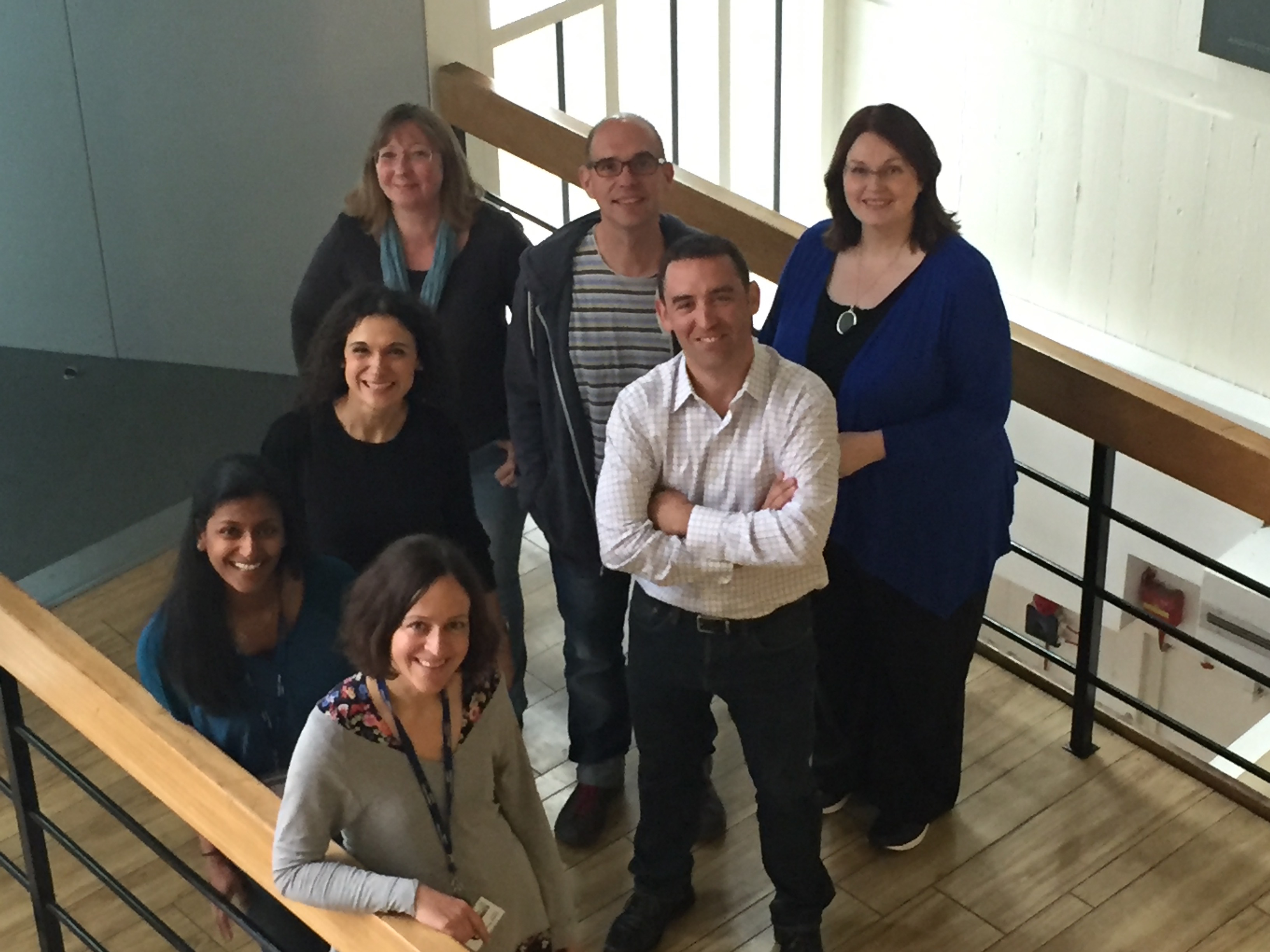By Helen Figueira
July 7, 2016
Time to read: 4 minutes
By Deborah Oakley

“Sometimes science can feel very lonely. We want to let people know that we care,” says Silvia Santos, who is leading the MRC Clinical Sciences Centre’s (CSC) new in-house mentoring scheme. “We don’t have the answers for everything, but we can share our experiences and act as a point of contact.”
Six scientists, a human resource manager and a grants coordinator form the support network. Each brings a unique combination of scientific skills and life experiences.
The scheme was first set up for postdocs, and has since been extended to the whole institute. According to Santos, mentoring is particularly important for postdocs because it can be a period of uncertainty during which many will be considering whether to stay in, or leave, academia. She says, “People can struggle along the way. It’s good to know that someone else might have faced the same issues.”
“I’m still working out this work-life balance thing,” says Miguel-Aliaga
Those in need of advice can approach a mentor for an informal, confidential chat. This may be a pointer towards resources or a discussion on how to balance family life with science, something that mentor Irene Miguel-Aliaga, who leads the CSC’s Genes and Metabolism group, knows all about.
“I’ve set up a lab from scratch a few times, most recently while pregnant and looking after babies at the same time. So I’m still working out this work-life balance thing,” says Miguel-Aliaga. “I am aware of the confidence and childcare issues that affect many women in science – and also quite a few men – and I hope to contribute to creating a more inclusive environment.”
The mentors include scientists who have relocated many times. Santos, who leads the CSC’s Quantitative Cell Biology group, is Portuguese and first studied in Scotland before completing her PhD in Germany and further postdoctoral training in America. She recently returned to the UK to set up her own group here in London.
The mentors span the CSC’s three research themes, Epigenetics, Genes and Metabolism, and Integrative Biology. Enrique “Fadri” Martinez-Perez leads the CSC’s Meiosis group and has particular experience in communicating his science beyond the laboratory. Fiona Leiper, of the CSC’S Redox Metabolism group, has contributed to patient applications in both industry and academia. David Rueda leads the CSC’s Single Molecule Imaging group and says, “Having been a group leader for over a decade, I’ve had the opportunity to work with postdocs who are now building successful careers of their own. I believe it’s my role to provide strong mentoring to help postdocs reach success.”
Also on hand to offer advice about careers alongside the traditional academic track are Peter Faull, Barbara Hehir and Yalini Nathan. Faull works with scientists to identify and analyse proteins in a biological sample, a crucial step in many experiments, in the CSC’s Mass Spectrometry and Proteomics Facility. Hehir is human resources manager at the CSC, although she began her career as a geophysicist in the oil industry. She says that she can share first hand experience of career change and re-qualifying. Nathan coordinates grants and contracts for the institute, and has worked in support roles that have involved international travel and close interactions with researchers.
“We want to let people know that we care,” says Santos
The institute-wide mentorship scheme is part of the CSC/ICS Athena SWAN programme and includes a new annual Mentoring Award to “recognise the importance and value of effective mentoring at all stages of one’s career”. Inaugural awards went to Nuria Ferrandiz-Diaz, a postdoc in “Fadri” Martinez-Perez’s Meiosis group, and Petra Hajkova, who leads the Reprogramming and Chromatin group. Both were recognised for the tangible and significant difference their mentoring had made to life for their mentees – the researchers at the CSC who nominated them.
The CSC/ICS is working towards an Athena SWAN Silver award, following success in obtaining the Bronze award in 2014.